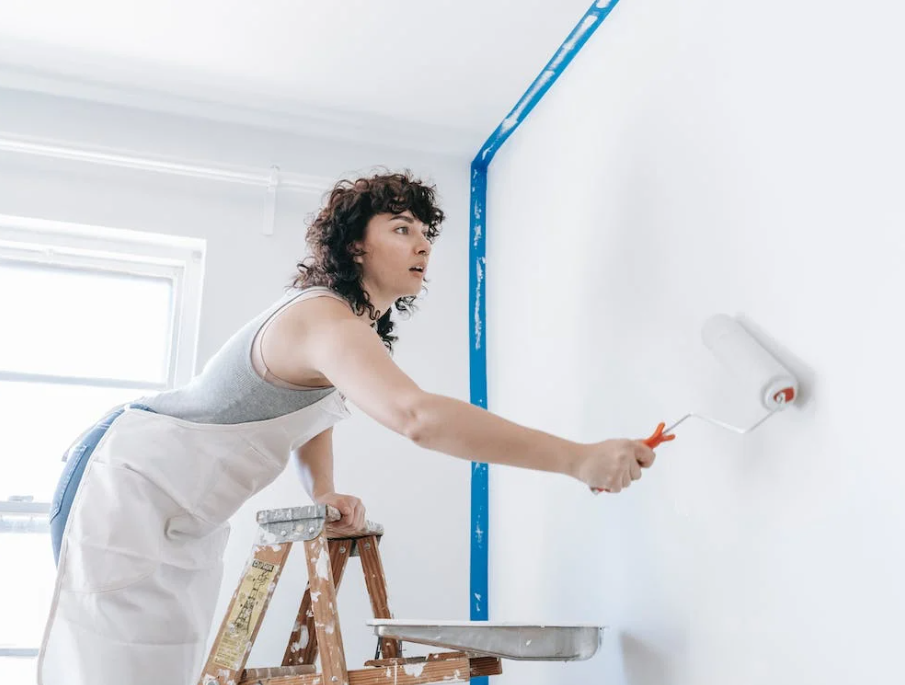Self Improvement
Learn about the process of working on oneself to develop one’s skills is known as self improvement.

Selfpause Affirmation App
Download the app to get 1,000’s of affirmation meditations and everything you need to write, record and listen to your own.
Self improvement is a process of working on yourself to improve your abilities. It can be a challenging and enjoyable process. It helps us achieve our goals and dreams, and can help us build human capital.
Self-improvement is a process of working on yourself to get better at something

Regardless of your field or interest, self-improvement is the process of working to improve your strengths and weaknesses. It may take months or years, but self-improvement can help you overcome problems, improve your relationships, and enhance your abilities. There are many ways to improve yourself, from simple tasks like reading a book to more complex ones such as learning a new skill or meditation.
One of the most important things to do to improve your skills is to make a list of your strengths. If you are a singer, for example, you can develop your talents by learning songwriting. Similarly, a good content marketer can learn more about SEO. A family physician can also grow his or her practice by specializing in a specific area of medicine. If you’re a natural in one area, make sure to build on that strength and practice it in other areas.
The key to self-improvement is overcoming the fears that keep you from achieving your goals. When we avoid challenging ourselves, we limit our potential and rob ourselves of the chance to experience success. Luckily, this can be changed, but it can only be done by overcoming these fears. Self-improvement is not a solitary process; it requires reflection and collaboration with others to help you reach your goals.
Self-improvement is a vital part of a healthy life. It not only improves your health and well-being, but also helps your relationships with others. A positive mindset will make you happier and increase the chances of enjoying your life more.
It is a habit
We need to be constantly improving ourselves if we want to see changes in our lives. That means learning new skills, becoming more responsible, and spending more time with the people we love. However, before we can begin our journey toward self improvement, we must first understand the benefits of this practice. Read on to learn more about how self improvement can help you live a more fulfilled life.
It can be fun
Self improvement is something that can be fun to do. Learning a new hobby can open many doors and help you meet new friends, as well as developing a positive self-image. Pick a hobby that you like and start learning. There are many books, blogs, and courses available to help you learn a new skill. In the end, you’ll be happy you did.
It can be tedious

Self improvement is not just for yourself. It also has an impact on others. It can be frustrating for others and a distraction from conversation. In fact, some people may even become annoyed when they see you working on something. So, it is important to understand why self improvement can be a drag and how to make it more fun.
Developing a self improvement routine can be beneficial to your life. You may want to work towards being more successful in life, whether it’s in the workplace or at home. You may also want to make your life more enjoyable. You can do this by engaging in activities you enjoy. You can also clean your workspace or living area, find a mentor or take a walk.
Exercise

Whether you’re trying to lose weight or just want to improve your physical condition, exercising as part of a self improvement routine is a great way to start. You can build your confidence and strength over time. It’s also a way to combat the effects of aging. In addition, physical activity can improve your energy levels.
When you’re starting an exercise routine, you want to set small, manageable goals. You can add more exercise volume and intensity gradually. You’ll also want to record your workouts. This will help you to gauge your progress and will be a motivating factor in the future. You can also reward yourself after you achieve your fitness goals. These simple rewards can be as simple as taking a hot bath or enjoying a cup of your favorite coffee.
Exercise can be a great way to relieve stress and anxiety. It also improves brain function and self-efficacy. It also boosts energy levels, which can increase alertness. If you’re not comfortable working out alone, try finding a workout partner. It’s much less likely you’ll skip a workout if you have someone to motivate you.
If you find yourself losing interest in your workout routine, you should try a different exercise or change it up. Adding a reward to your workout can be a great way to keep yourself motivated. You can also try something new, like an audiobook or watching your favorite TV show.
If you’re not sure how much exercise to do, start with a simple goal like ten minutes a day. You can then progress to more difficult goals. It’s also a good idea to have a friend or family member check in with you to see how you’re doing.
Take a walk

Taking a walk as part of your self improvement routine can have a number of benefits. It can help with weight loss, reduce stress, and make you feel better physically. It also improves your mood.
If you haven’t been taking a walk as part of your self improvement routine for awhile, try to make it a regular activity. Start with a few minutes a day and work your way up. It’s okay to miss a day if you’re having a bad day. Eventually, you’ll get into a routine and enjoy it.
Try to find a route that’s near your home. Find a new park or neighborhood and try walking there. If you don’t feel like walking alone, ask a friend to join you. Make sure you’re walking in a safe area. Also, wear reflective clothing.
If you’re tired, try to push through it. You can also start to add intervals to your walking routine. Start at a slow pace and increase the distance you’re walking.
Using an activity tracker can help you keep track of your time and distance. You can also track your heart rate. You can also plan your walks to occur during specific times of the day.
When you’re walking, try to focus on the moment and pay attention to your surroundings. It’s also important to keep your music volume low. You can also incorporate mindfulness meditation to help with anxiety.
If you’re new to walking, start off at a gentle pace. This will give you an organic sense of the right intensity for you. Increase your walking routine at the end of each week, but don’t overdo it.
Find a mentor
Getting a mentor as part of your self improvement routine is a great way to build professional connections and to develop your skills. If you are just starting out in your career, or if you are a mid-career professional, you can benefit from a mentor who can help you grow and challenge you to achieve more.
A mentor can be a friend, colleague, or professional. He or she can act as a mentor by providing advice, support, and feedback.
When deciding on a mentor, consider who you admire most. Find someone with a similar background, career, and goals to yours. You may also consider looking for someone with a similar industry.
Mentors typically have a network of people they are connected to, and this can help you to find the right person for your needs. You might even be able to find a mentor through a professional association. These are generally nonprofit groups dedicated to advancing an industry.
You can also look for a mentor online. If you are looking for someone to help you with your career, you may be able to find a mentor through the Six Degrees Society, a Manhattan-based organization for women. Using the organization’s search engine, you can find industry associations that specialize in a certain field.
If you are looking for a mentor, you need to be willing to be open and honest with your mentor. You don’t want to end up souring the relationship. You also don’t want to make your mentor feel uncomfortable. You don’t want to pressure your mentor to be more involved with you or to give you advice that doesn’t help you.
Our Top FAQ's
Some specific goals or areas you can focus on for self improvement could include things like improving your physical health, learning a new skill, increasing your knowledge or understanding of a particular subject, developing a positive attitude, or building stronger relationships with others. It’s important to choose goals that are meaningful to you and align with your values, as this will help you stay motivated and committed to your self improvement journey.
Developing a daily routine or habit that promotes self improvement can be a powerful way to make progress in your goals. Some ideas for self improvement habits might include setting aside time each day for exercise or physical activity, reading or learning something new, practicing mindfulness or meditation, or journaling about your progress and challenges. The key is to find activities that work for you and that you enjoy doing, as this will make it easier to stick with your routine over time.
There are many resources and tools available to help you with self improvement. These might include books, courses, websites, apps, or other resources that provide information, guidance, or support for your specific goals. Some popular resources for self improvement include books on personal development, online courses or tutorials, fitness or wellness apps, and productivity tools. It can be helpful to explore different options and find what works best for you.
Measuring your progress in self improvement and staying motivated can be challenging, but there are a few strategies that can help. One approach is to set specific, measurable, achievable, relevant, and time-bound (SMART) goals for yourself, which can help you stay focused and track your progress. It can also be helpful to find ways to reward yourself for your achievements, whether that’s through small treats or more significant rewards like taking a vacation or buying something you’ve been wanting. Additionally, surrounding yourself with supportive friends or mentors who can encourage and motivate you can be a great way to stay on track.
Overcoming challenges or setbacks that may arise in your self improvement journey is an important part of the process. Some strategies for overcoming challenges include staying positive and focused, breaking your goals down into smaller, more manageable steps, seeking out support or guidance from others, and being flexible and open to change. It can also be helpful to practice self-compassion and remind yourself that setbacks and failures are a normal part of the learning and growth process. If you find yourself struggling to make progress, it may be helpful to reassess your goals or seek out additional resources or support to help you get back on track.
